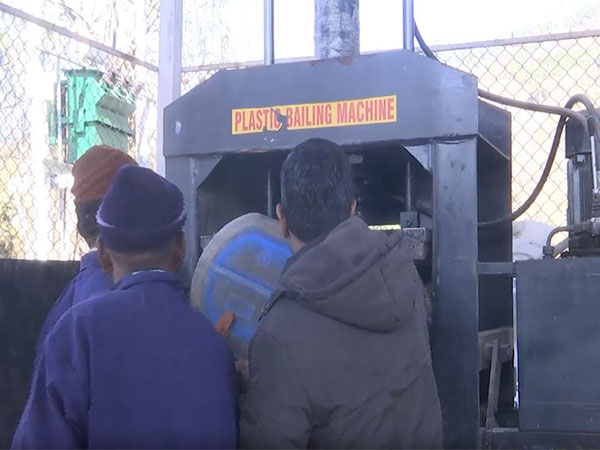
Rajouri: The District Administration of Rajouri has launched several initiatives aimed at promoting a plastic-free environment and enhancing waste management, particularly in the border and remote areas like Lamberi and Nowshera. These efforts, part of the Swachh Bharat Mission (Gramin), have led to improved cleanliness and job creation for local residents.
To manage plastic waste effectively, the government has established fully operational plastic waste management units in these blocks. Moreover, segregation sheds have been set up in every panchayat to aid in the organized sorting of waste. Local workers, known as Swachhta Doots, are employed to oversee the waste segregation and disposal processes.
In an interview with ANI, Mohammad Anwar, a Swachhta Doot, shared, “The block authorities have provided us with jobs, and we are dedicated to our work. Previously, it was quite challenging, but now seven of us are employed. We visit various villages to empty the dustbins installed there and manage the waste. The block has also given us a vehicle for collection, allowing us to separate paper, bottles, and other materials.”
The introduction of plastic waste management units has greatly enhanced hygiene in the area. Resident Sher Singh remarked, “A plastic waste unit has been established, leading to a cleaner village. There was previously a lot of dirt and garbage, but now it’s significantly improved.” Yograj, a local watchman, added, “The toilets built here are very beneficial. They weren’t available before, but thanks to the block authorities, we now have them. Cleaning has improved, and people used to litter everywhere.”
Manoj Kumar, the Panchayat Account Assistant, explained the operational details: “I manage this Swachh Bharat Mission Gramin scheme. There are eight panchayats in the block and six segregation sheds. We have appointed Swachhta Doots in each panchayat to collect waste from local markets and place it into large dustbins. Vendors then collect the waste, sort it at the sheds, and transport it to the plastic management units. One vendor, Ajay Choudhary, processes the plastic waste and bundles it for revenue generation.”
He added that seven Swachhta Doots are currently working under the initiative, receiving financial support from the panchayats alongside additional income from processed plastic waste. The district’s waste management infrastructure includes two shredder machines and two bailing machines, with one of each currently operational.
